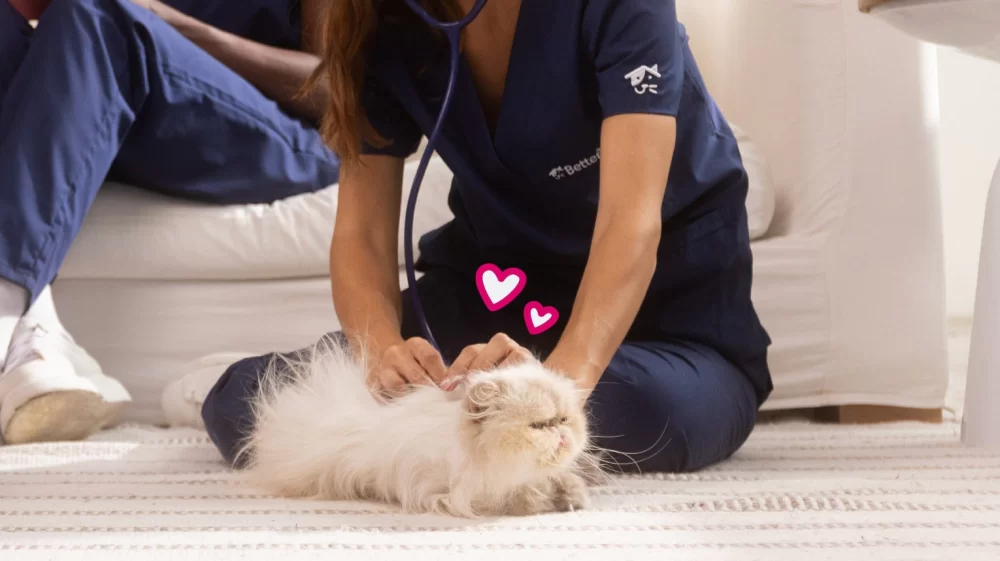- 1. The Importance of Preventive Healthcare for Pets
- 2. Key Components of Preventive Pet Care
- 3. Common Preventive Measures for Pets
- 4. The Role of Veterinary Care in Preventive Healthcare
- 5. Creating a Preventive Care Routine for Your Pet
- 6. Real-Life Case Study: The Benefits of Preventive Care
1. The Importance of Preventive Healthcare for Pets
Preventive healthcare for pets plays a crucial role in ensuring that your pet stays healthy throughout their life. Just as with humans, it’s always better to prevent diseases than to treat them later. Preventive care focuses on avoiding common health issues, spotting early signs of illness, and promoting overall wellness. By investing in preventive care, pet owners can reduce the likelihood of costly treatments and ensure a better quality of life for their furry companions.
2. Key Components of Preventive Pet Care
Preventive pet care encompasses a variety of aspects, all aimed at maintaining your pet's health and well-being. Some of the key components include:
- Routine Checkups: Regular visits to the vet ensure your pet’s overall health is monitored and any potential issues are caught early.
- Vaccinations: Vaccines protect your pet from dangerous diseases and infections, providing long-term immunity.
- Parasite Control: Fleas, ticks, and worms can cause serious health problems. Using parasite prevention methods keeps these threats at bay.
- Dental Care: Proper dental hygiene helps prevent gum disease, tooth decay, and other serious oral health issues.
- Nutrition and Weight Management: A balanced diet and maintaining a healthy weight are essential for preventing obesity and related diseases.
These essential steps form the foundation of any preventive healthcare plan and are crucial for your pet’s ongoing health and happiness.
3. Common Preventive Measures for Pets
Preventive healthcare for pets involves multiple measures that can easily be integrated into their routine care. Some of the most common preventive measures include:
- Annual Vet Exams: Even if your pet seems healthy, an annual checkup with the vet can help identify any hidden issues before they become serious.
- Flea and Tick Prevention: Fleas and ticks can transmit diseases like Lyme disease and other parasites. Regular use of flea and tick preventatives can avoid these health risks.
- Regular Grooming: Grooming not only keeps your pet looking good, but it also allows you to check for skin conditions, bumps, or other problems that may go unnoticed.
- Microchipping: Microchipping ensures your pet can be identified and returned to you in the event they get lost, preventing trauma or stress from separation.
These steps are simple yet incredibly effective in promoting long-term health and safety for your pets.
4. The Role of Veterinary Care in Preventive Healthcare
Veterinary care is at the heart of preventive healthcare for pets. Regular veterinary visits are essential for catching potential health problems early and ensuring that preventive measures are properly followed. Your vet will help guide you in creating a personalized health plan for your pet, taking into account their breed, age, and health history. By working closely with a trusted veterinary team, you can ensure that your pet stays on track with their preventive care routine and remains as healthy as possible.
5. Creating a Preventive Care Routine for Your Pet
Creating a consistent preventive care routine is one of the most effective ways to keep your pet healthy. Here’s how you can create a routine that works:
- Set up regular vet visits: Schedule annual or biannual vet visits to stay ahead of potential health issues.
- Keep track of vaccinations: Ensure your pet stays up-to-date with their vaccination schedule.
- Practice daily grooming: Brushing your pet’s coat regularly helps prevent skin infections and allows you to check for health issues.
- Feed a balanced diet: Choose the right food for your pet’s breed, age, and health requirements, and monitor their weight.
- Provide parasite prevention: Follow your vet’s advice on flea, tick, and worm prevention based on your pet’s lifestyle.
A well-established routine will help ensure that you’re doing everything you can to protect your pet from illness and maintain their health. For more tailored products and services to suit your pet’s needs, Hidden Brook Veterinary offers a wide range of options to help you create the best care routine for your pet.
6. Real-Life Case Study: The Benefits of Preventive Care
One of our clients, Emily, shares her experience with preventive healthcare for her cat, Bella. Bella was diagnosed with kidney disease at the age of 9, but because Emily followed a strict preventive care routine, Bella's condition was caught early, allowing her to manage the disease more effectively with medication and dietary changes. By keeping up with regular vet visits, vaccinations, and dental care, Emily was able to ensure that Bella had a higher quality of life and maintained her overall health well into her senior years.
This case highlights how preventive care can make a huge difference in a pet’s long-term health and longevity. With a little effort and consistency, your pet can lead a long, happy, and healthy life.












